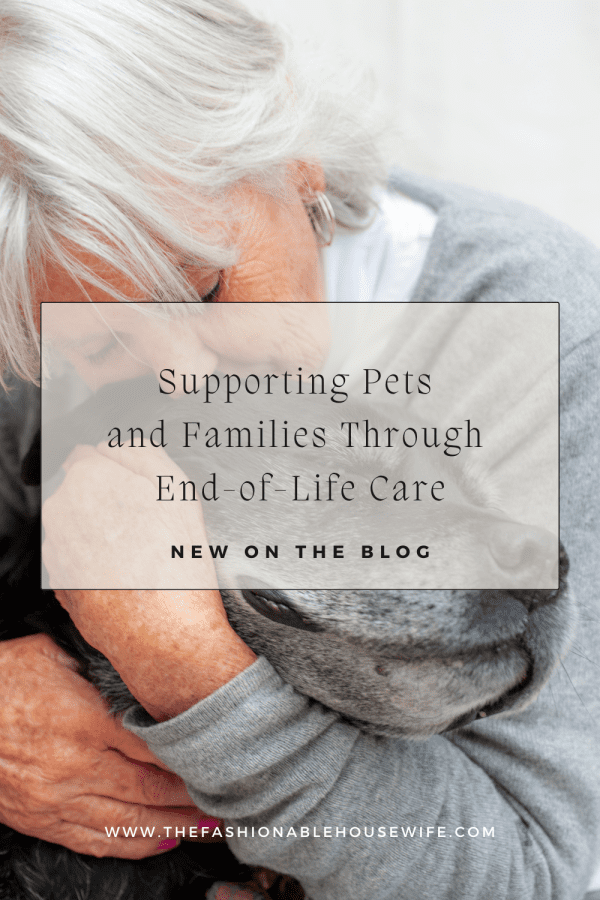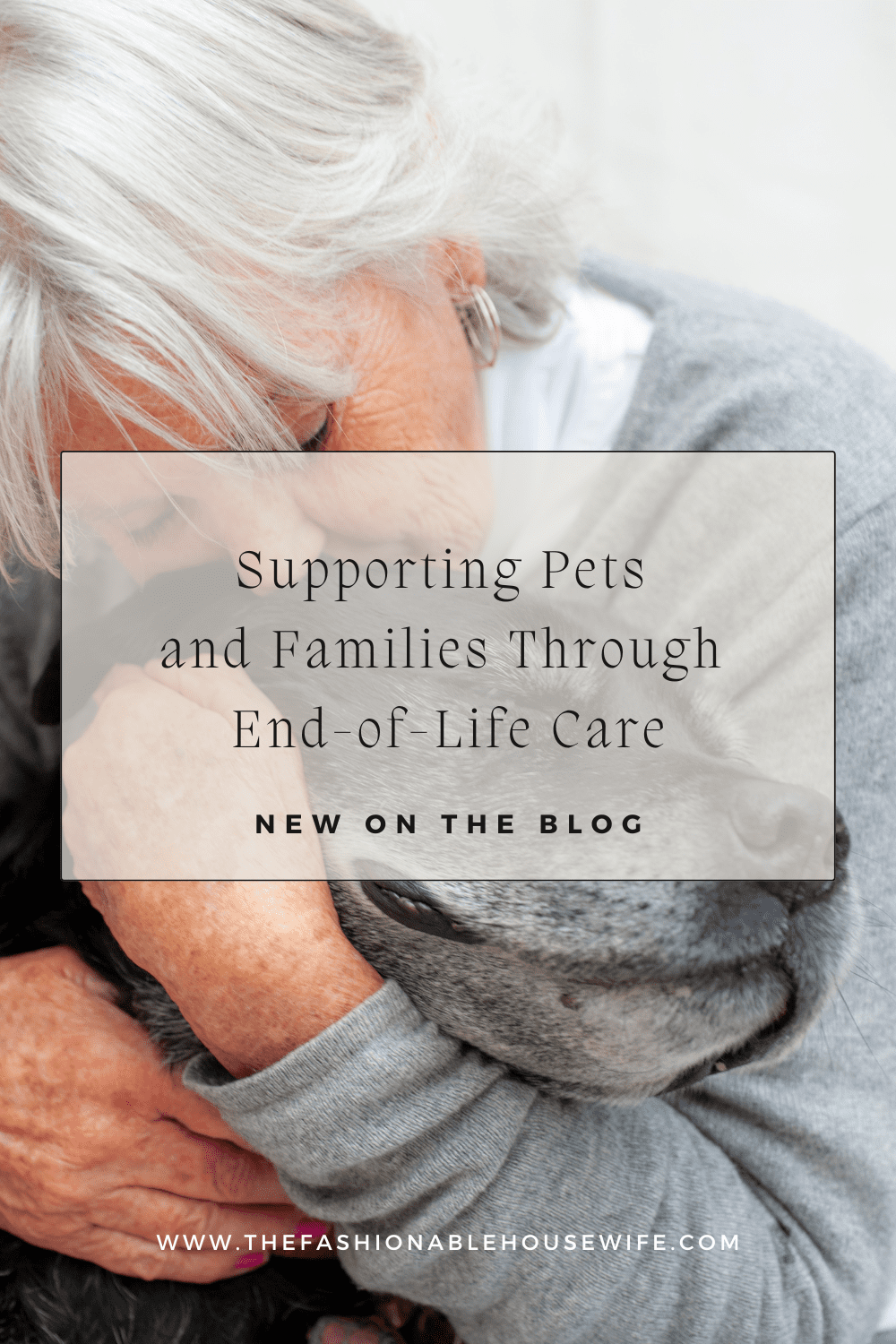Supporting Pets and Families Through End-of-Life Care

Table of Contents
- Introduction
- Understanding End-of-Life Care
- Recognizing When It’s Time
- Options for End-of-Life Care
- Emotional Support for Families
- Planning Ahead
- Aftercare and Memorials
- Wrap Up
Facing the end-of-life stage of a beloved pet is an emotional journey for any family. The decisions made in these moments are deeply personal and impactful, and providing compassionate care is essential. This includes options such as dog euthanasia, which can offer pets a peaceful transition and families comfort during a difficult time. Ensuring the well-being of your pet in their final days also means supporting family members who are grieving and helping everyone navigate these delicate decisions with kindness. End-of-life care for pets prioritizes comfort, dignity, and bonding. Open communication with veterinarians and household members helps set expectations. Resources, support systems, and a plan can alleviate stress, honoring love, loyalty, and memories built with pets over the years.
Understanding End-of-Life Care
End-of-life care for pets involves holistic support, shifting from curative treatments to comfort care, focusing on a pet’s quality of life, pain relief, and emotional well-being. Working closely with a veterinarian, you’ll receive guidance on pain management, mobility aids, and lifestyle adjustments. Recognizing signs of end-of-life is crucial, and open communication with the veterinary team is essential. Quality of life scales like the HHHHHMM Scale help assess comfort levels and guide decision-making. Additional information on recognizing end-of-life signs and understanding your options can be found at the ASPCA’s end-of-life care resource.
Options for End-of-Life Care
Families facing a pet’s final days have several options for end-of-life care, depending on their pet’s needs and family wishes:
- In-home euthanasia – This gentle, veterinarian-supervised process allows pets to pass peacefully in the comfort of their own home, surrounded by loved ones. Many families find this option less stressful, as it eliminates transport-related anxiety and preserves comforting routines.
- Hospice care – Veterinary hospice, similar to human hospice, focuses on palliative support, symptom management, and maintaining dignity and closeness. It is recommended for families who choose to allow for a natural passing, with careful attention to pain and quality of life.
A veterinarian experienced in end-of-life care can help develop a plan tailored to your pet’s unique situation.
Emotional Support for Families
Saying goodbye to a cherished companion is an intensely emotional process. Families can experience a range of feelings—sadness, guilt, relief, or confusion. Seeking support from pet loss support groups, mental health counselors, or online communities is encouraged. Resources like the Rainbow Bridge Pet Loss Grief Support Center provide compassionate tools and peer support. Connecting with others who’ve gone through similar experiences can make the grief journey less isolating and offer strategies to process loss.
Planning Ahead
Preparing for the end-of-life stage is one of the most loving gifts you can give your pet—and yourself. Initiate conversations with your veterinarian early about what to expect and the options available. Many clinics offer advanced care planning sessions to review end-of-life preferences, logistics, and costs. By making decisions ahead of time, such as where you want your pet to spend their final moments or specific aftercare wishes, you can reduce stress during an emotionally charged time and focus fully on your companion’s comfort and needs.
Aftercare and Memorials
After a pet passes, families must consider aftercare arrangements. Options typically include:
- Cremation – Available as communal or private cremation, with ashes returned to the family upon request.
- Traditional burial – Either at home (where permitted) or in a pet cemetery, offering a physical place to visit and remember.
- Aquamation – An eco-friendly method using water and alkali to gently return remains to the earth.
Memorials help families process their grief and celebrate their pet’s life. These tributes may take the form of personalized keepsakes, photo albums, ceremonies, or charitable donations in your pet’s name.
Wrap-Up
Supporting senior pets and families through end-of-life care is an act of profound love, compassion, and respect. This emotional stage requires not only tending to a pet’s physical comfort but also recognizing and supporting the deep bond shared with them. By understanding the signs that it may be time, exploring all available care options, and planning ahead, families can ensure their pets experience peace and dignity in their final days. Emotional care for pet owners is equally vital—seeking grief support and connecting with others can bring comfort and healing during a time of loss. Thoughtful aftercare decisions and meaningful memorials allow families to honor their pet’s memory and celebrate the joy they brought into their lives. Ultimately, end-of-life care is about cherishing every moment, making compassionate choices, and finding solace in knowing your pet’s journey was guided by love.

